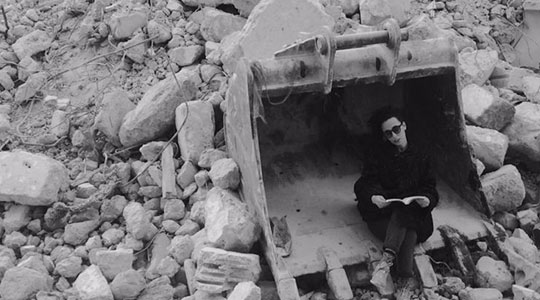Rima Najdi
[LB/DE]

Rima Najdi is a Lebanese-born, Berlin-based performance artist working across performance, video and installation. Her work occupies and (re)negotiates in-between spaces: between the self and other, reality and fiction, physicality and emotion.
Najdi has described herself as speaking "French in an Arabic accent, English in a French accent and Arabic in a Lebanese accent." In works like Dress ME how YOU like and GRAPHIC WARNING: It is not ME it is YOU, she grapples with the ways in which identity is constructed and perceived, focusing on the lived experience of the body. She is interested in the vulnerability of the body in relation to the highly politicized tropes of gender, safety, mobility and representation. In action or as artefact, her art questions stereotypes, the failure of language and both real and imagined borders.
Najdi holds degree in Dramatic Arts from Lebanese University's High Arts Institute and an MA in Performance Studies from Tisch School of the Arts at New York University (2011). Her work has been presented throughout the United States, Europe and North Africa, including in an exhibition for "Entangled Perspectives on Participatory Citizenship," a symposium of German and Turkish academics, artists and activists held at Berlin's Haus der Kulturen der Welt in 2015, and at Tunisia's international feminist art festival Chouftouhonna. Najdi has also taken part in residency programs around the world, including the Watermill Center International Summer Residency program in 2011 and the Sundance Theatre Lab in Morocco. She is currently a member of Urban Heat, a four-year project initiated by the Festivals in Transition (FIT) network and supported by Creative Europe, which empowers artists to address urgent political and social issues in cities around the world alongside affected and often marginalized communities.
Rima Najdi appears at CTM through the CTM Radio Lab, an initiative created together with Deutschlandradio Kultur and supported by the ORF Austrian Broadcasting service, SoCCoS Sound of Culture Culture of Sound, and the Creative Europe programme of the European Union.


